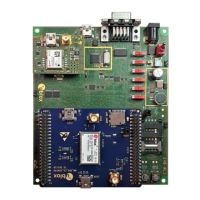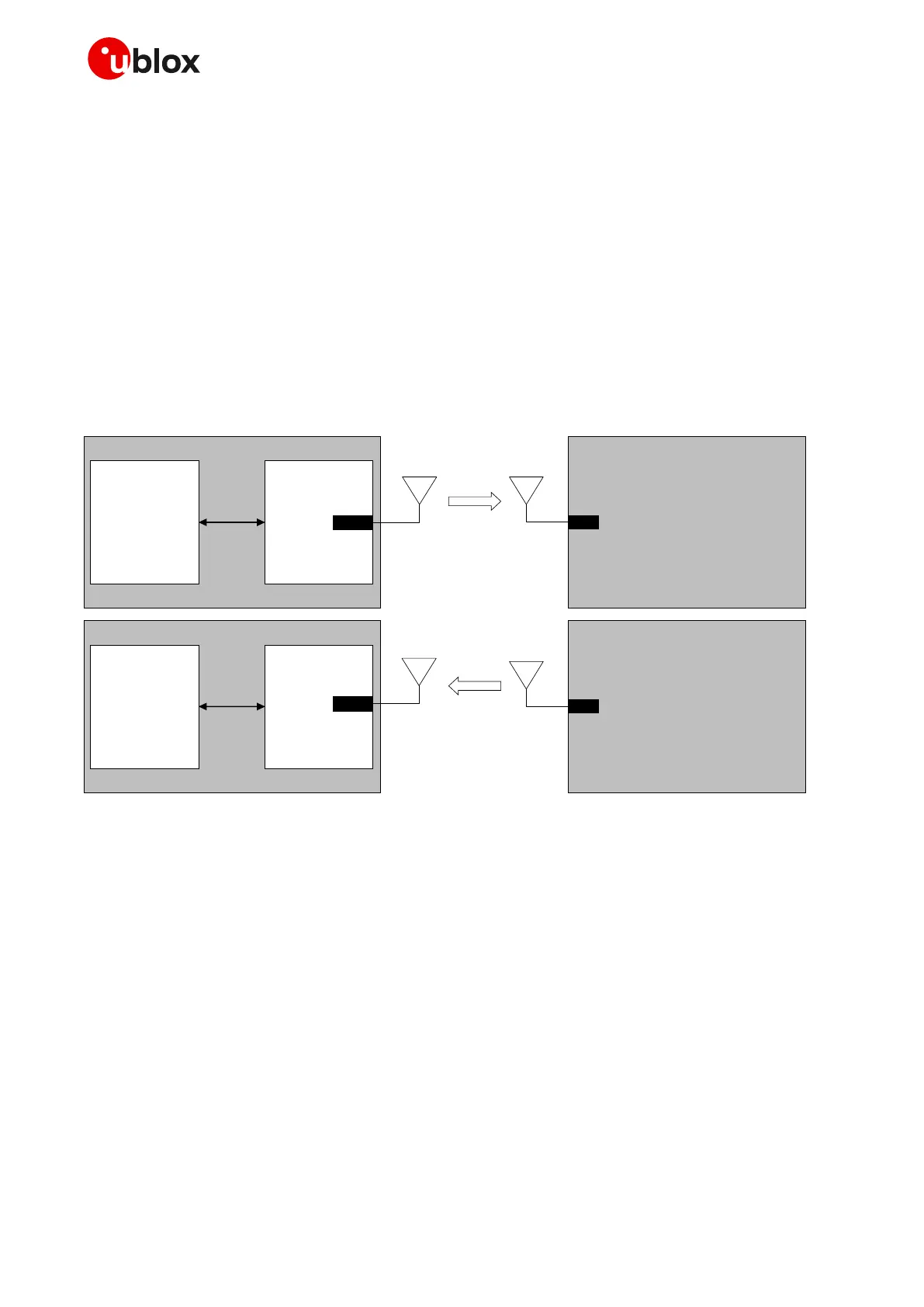SARA-R5 series - System integration manual
UBX-19041356 - R04 Product testing Page 112 of 118
C1-Public
This feature allows the measurement of the transmitter and receiver power levels to check the
component assembly related to the module cellular antenna interface and to check other device
interfaces on which the RF performance depends.
⚠ To avoid module damage during a transmitter test, a suitable antenna according to module
specifications or a 50 termination must be connected to the ANT port.
⚠ To avoid module damage during a receiver test, the maximum power level received at the ANT port
must meet module specifications.
☞ The +UTEST AT command sets the module to emit RF power ignoring LTE signaling protocol. This
emission can generate interference that can be prohibited by law in some countries. The use of
this feature is intended for testing purposes in controlled environments by qualified users and
must not be used during the normal module operation. Follow the instructions suggested in the
u-blox documentation. u-blox assumes no responsibilities for the inappropriate use of this feature.
Figure 74 illustrates a typical test setup for such an RF functional test.
Figure 74: Setup with spectrum analyzer or power meter and signal generator for SARA-R5 series RF verification
5.2.3 GNSS RF functional tests
The best way to test the GNSS RF functionality is with the use of a Multi-GNSS generator, as it
assures reliable and constant signals at every measurement.
u-blox recommends the following Multi-GNSS generator:
• Spirent GSS6300
Spirent Communications Positioning Technology
www.positioningtechnology.co.uk
Guidelines for GNSS RF functionality tests:
1. Connect a Multi-GNSS generator to the OEM product.
2. Choose the power level in a way that the “Golden Device” would report a C/No ratio of 38-40 dBHz.
3. Power up the DUT (Device Under Test) and allow enough time for the acquisition.
4. Read the C/No value from the NMEA GSV or the UBX-NAV-SVINFO message (e.g. with u-center).
5. Compare the results to a “Golden Device”.

